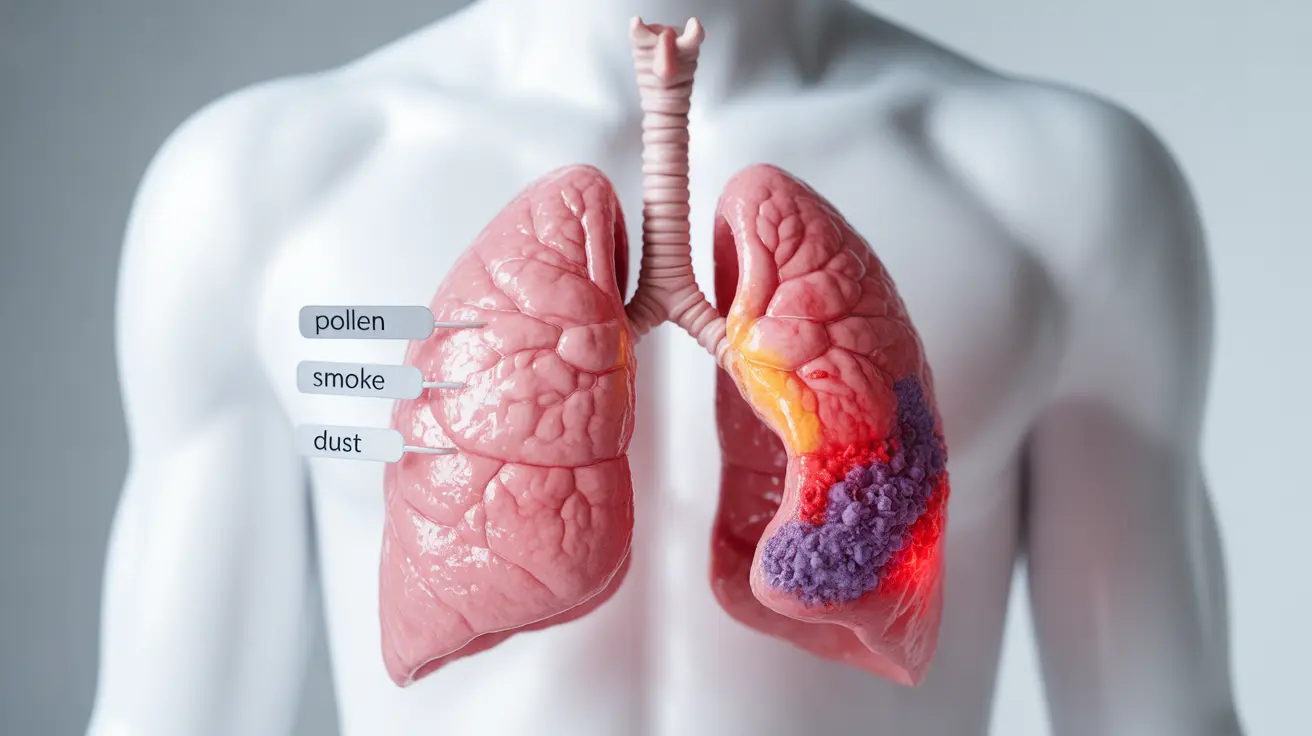That persistent tickle or itchy sensation in your chest can be both uncomfortable and concerning. While we often associate itching with skin conditions, the feeling of itchy lungs is a real phenomenon that can stem from various underlying causes. Understanding what triggers this sensation and knowing how to address it is crucial for maintaining respiratory health.
In this comprehensive guide, we'll explore the common causes of itchy lungs, available treatments, and important warning signs that indicate when you should consult a healthcare provider.
Common Causes of Itchy Lungs
Itchy lungs can result from several different factors, ranging from environmental irritants to underlying health conditions:
Allergic Reactions
Seasonal allergies, pet dander, and dust mites can trigger an inflammatory response in your airways, leading to that characteristic itchy or tickling sensation. When your immune system encounters these allergens, it releases histamine and other chemicals that can cause irritation in your respiratory system.
Environmental Irritants
Exposure to various environmental factors can cause lung irritation, including:
- Tobacco smoke
- Air pollution
- Chemical fumes
- Mold spores
- Strong fragrances
Respiratory Infections
Both viral and bacterial infections can cause inflammation in your airways, resulting in an itchy or tickling sensation. Common culprits include the common cold, bronchitis, and upper respiratory infections.
Treatment Options for Itchy Lungs
The appropriate treatment for itchy lungs depends on the underlying cause. Here are some common approaches:
Medications
Several types of medications can help alleviate the symptoms:
- Antihistamines for allergy-related symptoms
- Inhaled corticosteroids to reduce inflammation
- Bronchodilators to open up airways
- Decongestants to relieve nasal congestion
Natural Remedies
Some people find relief through natural approaches:
- Steam inhalation with or without essential oils
- Staying hydrated
- Using a humidifier
- Honey and warm tea
Prevention Strategies
Taking proactive steps can help reduce the occurrence of itchy lungs:
- Install air purifiers in your home
- Regular cleaning to reduce dust and allergens
- Avoiding known triggers
- Maintaining good indoor air quality
- Using protective masks when exposed to irritants
When to See a Doctor
While mild cases of itchy lungs often resolve on their own, certain symptoms warrant medical attention:
- Persistent symptoms lasting more than a week
- Difficulty breathing or shortness of breath
- Chest pain or tightness
- Wheezing
- Coughing up blood or colored mucus
Frequently Asked Questions
What causes an itchy or tickling sensation in the lungs or chest?
An itchy sensation in the lungs can be caused by allergies, environmental irritants, respiratory infections, asthma, or inflammation in the airways. This feeling occurs when nerve endings in your respiratory system are irritated by these various triggers.
How can allergies or environmental irritants lead to itchy lungs?
Allergies and irritants trigger an immune response that releases chemicals like histamine in your airways. This immune response causes inflammation and irritation, leading to the itchy sensation. Common triggers include pollen, dust, pet dander, smoke, and chemical fumes.
What treatments are available to relieve itchy lungs caused by asthma or infections?
Treatment options include antihistamines, inhaled corticosteroids, bronchodilators, and decongestants. For infections, antibiotics may be prescribed if bacterial. Natural remedies like steam inhalation, staying hydrated, and using humidifiers can also provide relief.
When should I see a doctor if I experience persistent itching or tickling in my lungs?
Seek medical attention if you experience symptoms lasting more than a week, difficulty breathing, chest pain, wheezing, or if you're coughing up blood or colored mucus. These could indicate a serious underlying condition requiring professional evaluation.
How can I prevent itchy lungs caused by exposure to smoke, mold, or pollution?
Prevention strategies include using air purifiers, maintaining good ventilation, avoiding known triggers, wearing protective masks when necessary, and keeping indoor spaces clean and free from mold. Regular cleaning and humidity control can also help reduce exposure to irritants.




